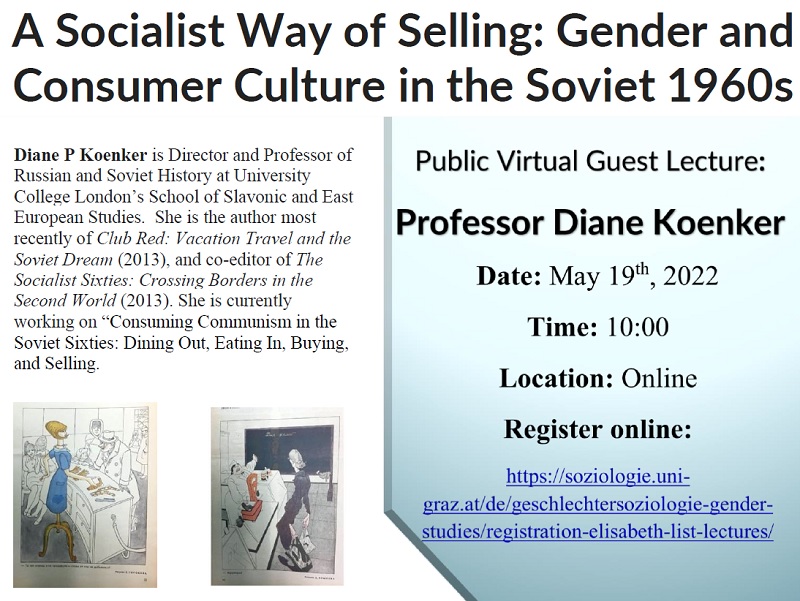The goal of cultured trade had been part of the Soviet consumer agenda since the 1930s and basing this culture on feminine qualities of politeness and service had led to the gendering of the retail sector as female. By the 1960s, the regime sought to further modernize Soviet trade by empowering these women to engage in market research and quality control along with providing service with a smile. They created a particular Soviet way of selling that combined elements of modern retailing and consumer research with collective responsibility on the part of producers and retailers. At the same time, trade and consumption in Soviet culture enjoyed lower status than production and science, and women sales assistants were frequent targets of criticism for their low level of culture, dishonesty, and lack of respect for their customers. These attitudes persisted even when sales work became more sought after because of its special access to deficit goods.
Diane P. Koenker is Director and Professor of Russian and Soviet History at University College London’s School of Slavonic and East European Studies. She is the author most recently of Club Red: Vacation Travel and the Soviet Dream (2013), and co-editor of The Socialist Sixties: Crossing Borders in the Second World (2013). She is currently working on “Consuming Communism in the Soviet Sixties: Dining Out, Eating In, Buying, and Selling.
This lecture is part of the Elisabeth List Fellowship ‘Everyday Creativity in (Post)socialism’ Public Lecture Series.
Online/uniMEET - Link will be sended after registration
